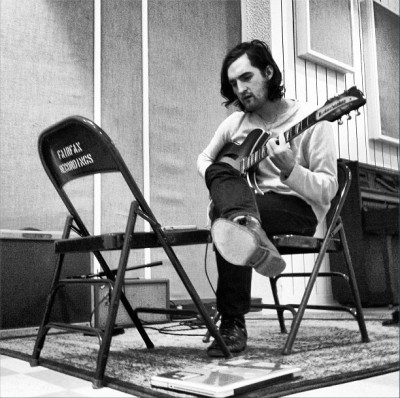
in this series, i ask other songwriters about their quest for inspiration and how they tackle the day-to-day tasks of writing quality, engaging songs. behind every good song is a hard-worker. i want to know how songwriters work and how they fill their well so it never goes dry.
…

Michael Ford Jr. is the front man of the roots-rock band The Apache Relay. If you don’t know their music, Michael’s voice can fill a stadium and reach you in the quietest little bar. Their songs soar like Springsteen and speak to the lost & lonely wanderer in us all. Fresh off several runs opening for Mumford & Sons, they are back in the studio working on their 3rd album. Michael talks about writing new material for the band, finding that inspiration meets him when he is most disciplined. Read more about his craft after the jump.
1. What is your typical workday?
My typical workday when I’m in Nashville consists of writing in the morning and at night. I find the middle of the day to be a particularly uninspiring so I use that time to run errands and generally just take care of all the other aspects of my life outside of writing. When I’m on tour its much more difficult to keep a writing schedule, but its also where I find that I get my best ideas and songs. By the time I find a moment to work on an idea sometimes it’s been over a week since I’d last written something and the release of that pent up creative energy typically causes intriguing ideas to flow.
2. What tools do you use to keep you organized and productive?
I always have a pen and notebook out or just anything to write on, sometimes it could be even be a brochure or a piece of junk mail—when I’m feeling inspired and in the moment I grab an item I can write on as soon as possible. I like to keep all of the lyrics that I’m working on organized in stacks in my living room (I usually have a pile of songs I’m currently working on, and another stack for tunes that I’ve decided to put on the backburner for a bit). I like writing a draft of the lyrics on half of the page (vertically down the page) so on the other half I can make corrections and write down alternate lines across from the lines they are replacing. The voice memo on the iPhone has been a total life changer–I’ll lay down ideas/songs and upload them into my computer and organize the ideas into playlist ….(“interesting ideas to check out”, “possible songs for the next record”) that sort of thing.
3. Do you have any habits, exercises or activities that jumpstart your creativity?
Going for walks/runs in the mornings and at dusk before I write,
Portland Brew iced coffee, driving around Nashville and listening to music.
4. Are there any specific (or favorite) books, films, lectures, etc. that have impacted your creative process?
When I think about poignant moments that have impacted my creative process what first comes to mind is conversations I’ve had with more experienced writers, specifically when I first started becoming serious about writing songs. The advice that I kept getting over and over again was simply, “keep writing.” I took that to heart and tried become more disciplined about songwriting and through pushing myself to do so I began to learn about how my own personal creative process works.
5. Where do you get your best work done?
Mornings and from dusk into late night…I think a lot really great ideas can come at the point of the night when you can just barely hold your eyes open. My friend was reading Quincy Jones’ book and he was telling me Quincy mentioned that there’s an increase of alpha waves in the brain right before the brain shuts down for sleep—supposedly these sorts of waves enhance creativity. Not sure of the science of how it all works, but I definitely think there’s something to it.
6. How do you combat writer’s block?
If I’m feeling really stuck on an idea I’ll set it down for a while and work on another one and then return back to it and usually something will come together. Another thing I try when I’m stuck on an idea or feeling uninspired is I’ll just let my iPhone record and try to flow lyrically/musically and that sort of thing helps me tap in to a subconscious place and get free.
7. Who is your songwriting hero?
Currently……
Blake Mills. His LP
Break Mirrors has changed the way I’ve thought about songwriting and music in general. His writing is timeless and at the same time, in my opinion, is furthering songwriting for our generation.
8. Do you have any advice to offer a new songwriter?
The best advice I could give is just keep writing, keep pressing in on your craft…..you’ve got to put yourself in a position to be inspired. I think a lot times when people first began writing they wait to write until they feel overwhelming inspired before beginning to write, at least that’s what I did. For me though, what I’ve learned over time is sometimes you just got to “show up for work” even when you’re not always feeling crazy inspired and just jump into an idea and I’ve found often times that’s when the inspiration will hit me. Additionally, study your favorite songwriters, learn from them, and challenge yourself to write a song a day. The best writers I know always seem to be the most disciplined.


